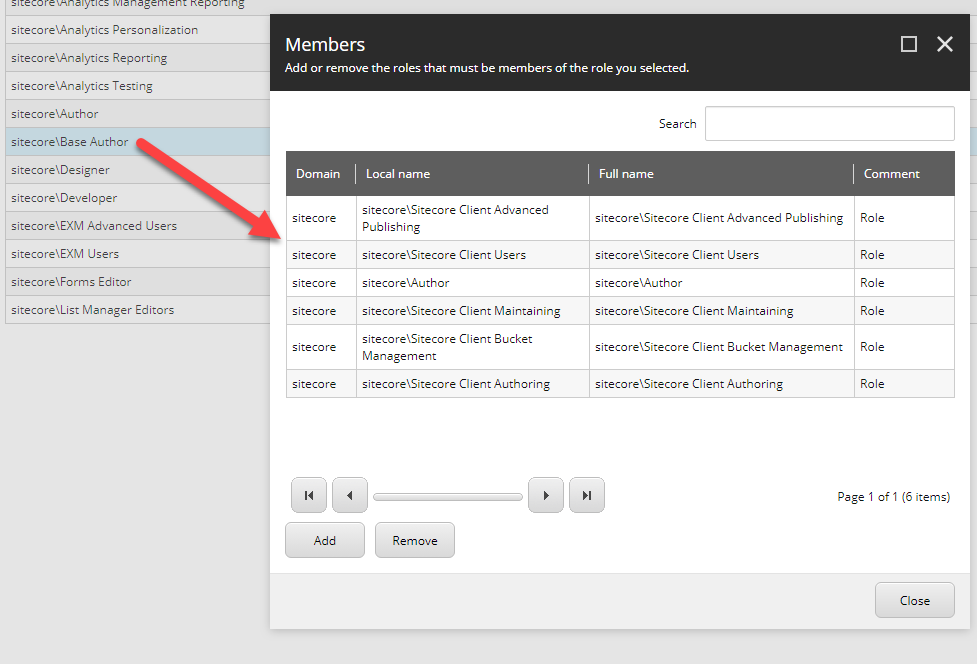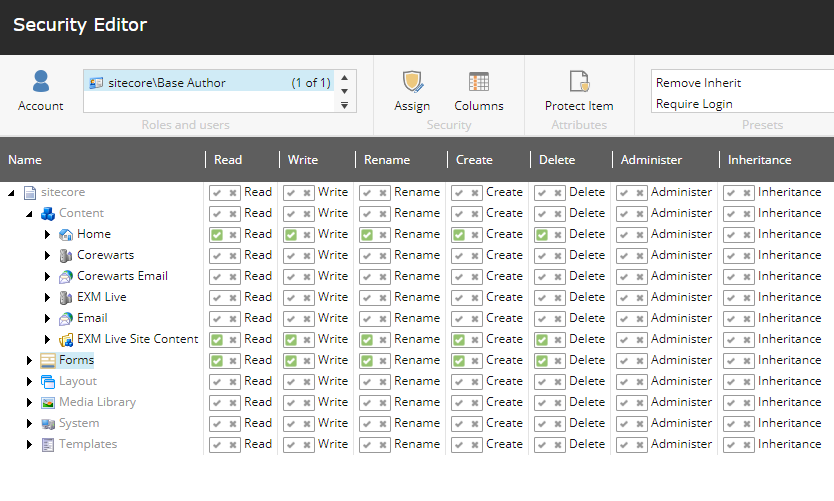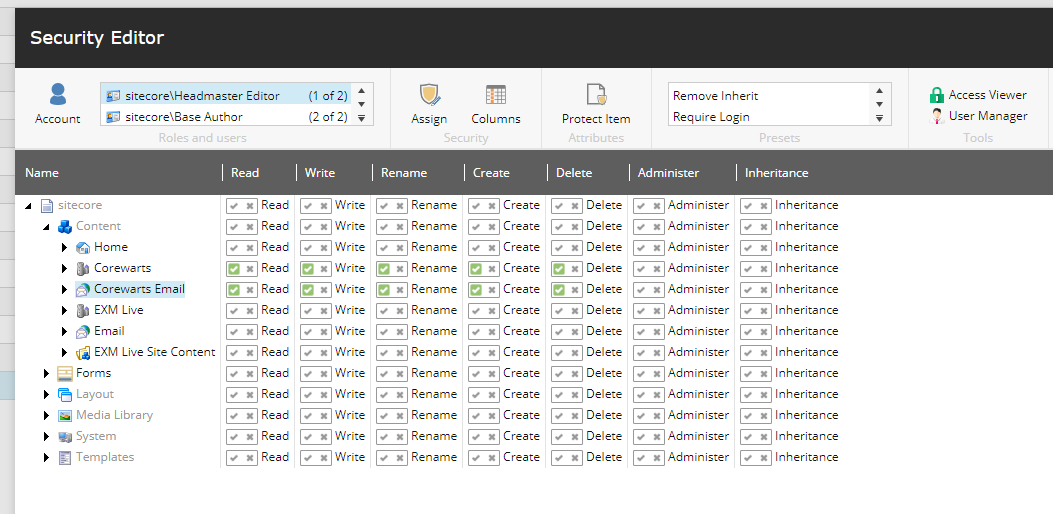##Use Role Inheritance
Use Role Inheritance
Your existing roles, which contain the shared access rules that are common among all of the secondary roles, should be members of the secondary roles.
Creating the Base Role
###Creating the Base Role ForFor example, let's say that your Base Role, we'll call it "Base Author" has access to all of the Media Libary, and all of your shared content. This will include all of the shared items and Sitecore default roles (as members) that are common among all of the secondary roles. So it might look something like this:
Creating the Secondary Role
###Creating the Secondary Role
SoSo for the purposes of this example, I'm going to call my role "Headmaster Editor". It's a member of the Base Author role.
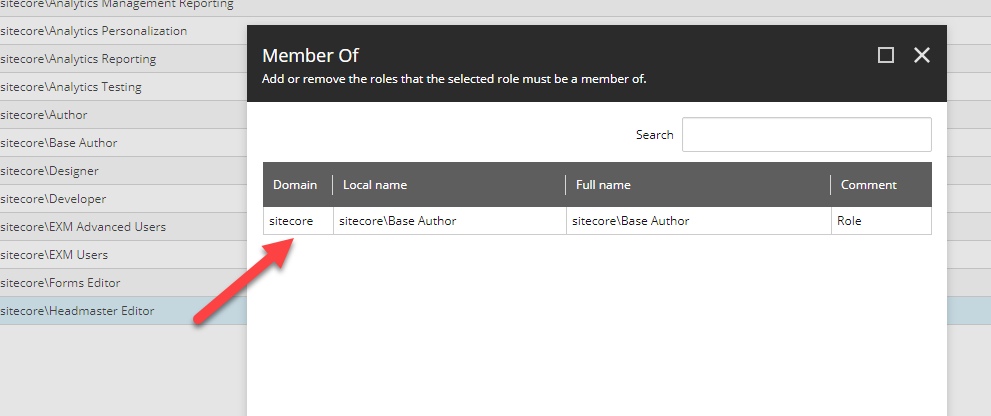
Assign the Secondary Role only to a user:
###Assign the Secondary Role only to a user:
AddingAdding the secondary role inherits all of the other roles.
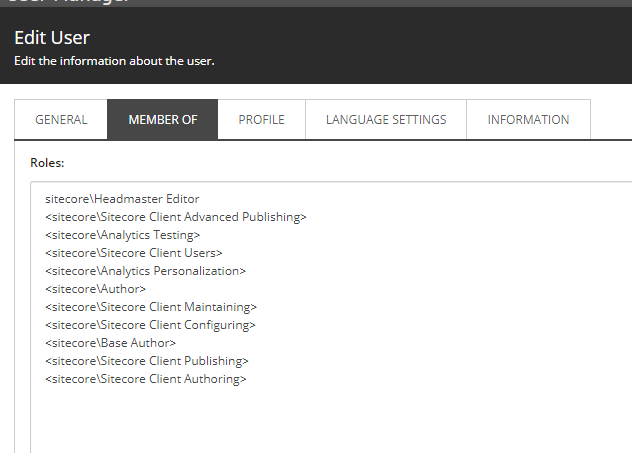
Magic Permission - Breaking Inheritance
##Magic Permission - Breaking Inheritance
Breaking the Inheritance of Descendants makes it possible to prevent any access to any content item UNLESS it has been given a Green Check mark in Security editor. Sitecore's role security is strict on "Red X's" for preventing access. Once a role has a Red X, it doesn't matter if other roles have Green Checkmarks, that user won't have access. So, instead of doling out Red X's, break the inheritance, and then only provide given access via Green Checkmarks. I do this by taking the sitecore/Author role, which is out of the box, and breaking the descendent inheritance on the /sitecore/content item.
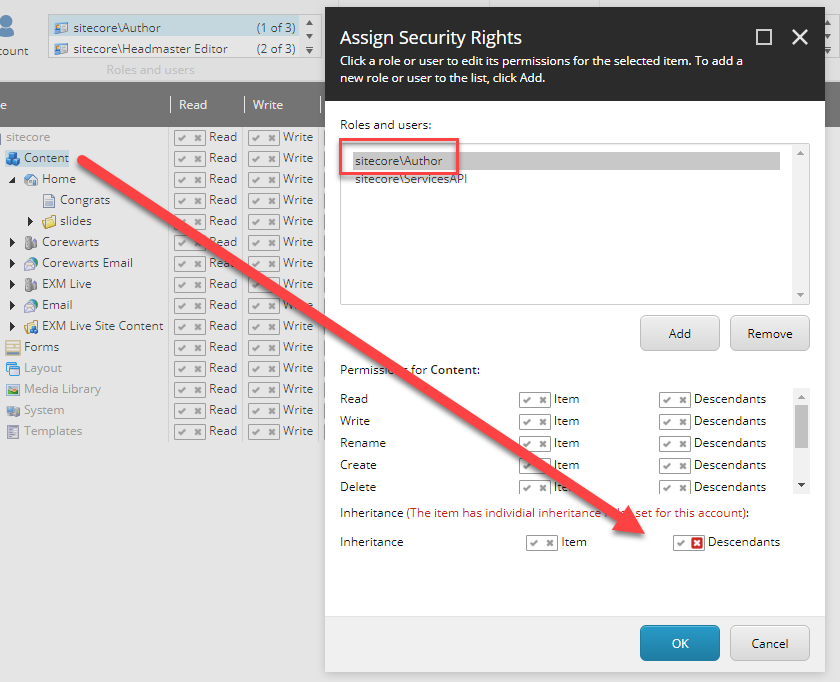
##Reviewing our Work
Reviewing our Work
Base Author Role
You can see here that Base Author Role only has access to the items that we gave it above.
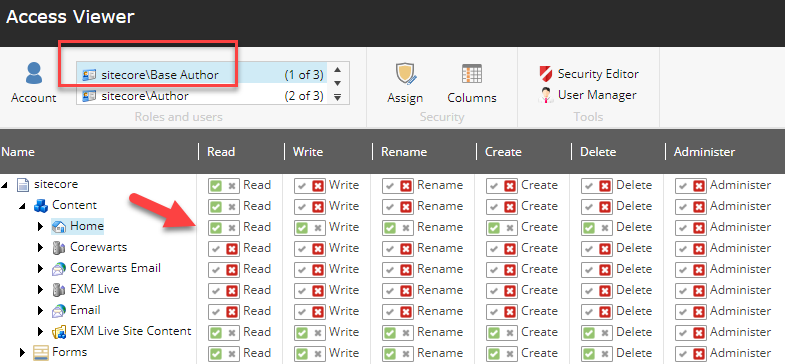
Headmaster Editor Role
But that the Headmaster Role has everything in the Base + Plus the content from the Headmaster Role.
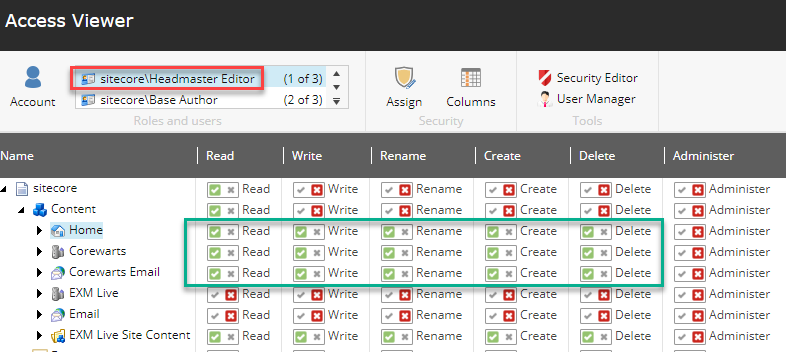
In Summary
#In Summary TheThe art and magic of role permissions is to be as simple as possible. If you're checking boxes all over the place and using red x's all over the place, you're doing it wrong. Keep it simple.
